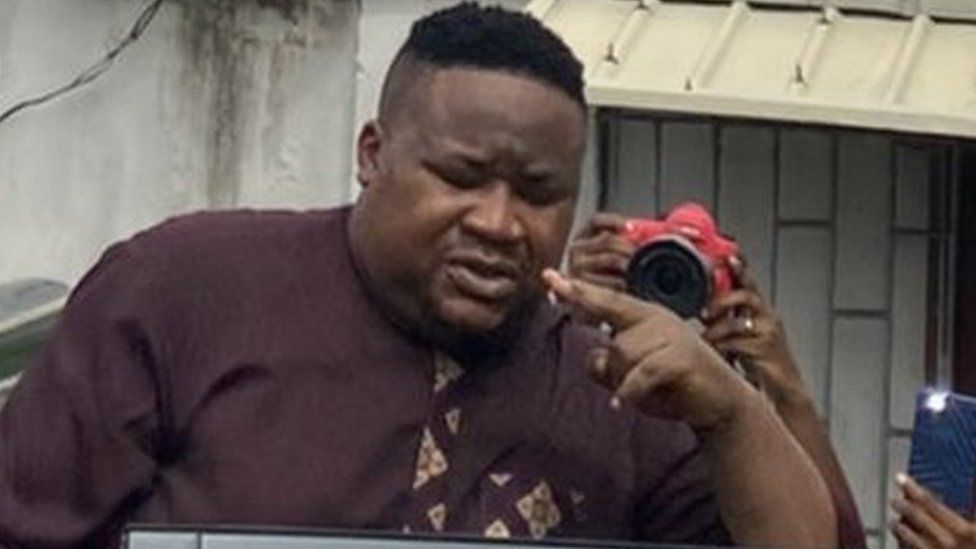Cubana Chief Priest: Nigerian socialite charged for throwing money in air
- Published

Nigerian socialite and businessman Cubana Chief Priest has become the latest local celebrity to be charged with abusing banknotes.
The socialite, whose real name is Pascal Okechukwu, pleaded not guilty to three counts of abusing banknotes during a court appearance on Wednesday.
Authorities say he threw money into the air at various social events.
This is technically an offence as notes fall to the ground where they can be trodden on.
The practice, known as "spraying", is commonly done at Nigerian weddings and celebrations as a token of appreciation.
On Tuesday, Nigeria's elite anti-crime agency, the Economic and Financial Crimes Commission (EFCC), said it was leading a drive against "all forms of naira [the currency] abuse".
The EFCC accused Okechukwu of "spraying" and tampering with 500 naira notes at events held this year in Nigeria's main city, Lagos.
After being charged at Lagos' Federal High Court, Okechukwu was given bail for 10 million naira ($8,600; £6,970).
Okechukwu, who owns a popular nightclub in Nigeria's oil-rich Delta State, addressed his five million Instagram followers after his court appearance.
Tagging his location as the federal court, he wrote: "Seeing all your messages & love I'm so humbled."
Just two weeks ago, popular internet personality Bobrisky was sentenced to six months in prison for a similar offence.
The judge said that "the act of mutilating the naira notes has become a menace, which has continued to damage the image of the country".
On Sunday, the EFCC said that several celebrities were being investigated for allegedly abusing the notes, and "many of them have made useful statements" to investigators.
The agency said 200 people across the country face prosecution, while 24 people have already been convicted.